 W
WThe Amy Biehl Foundation Trust was the organization established in Cape Town, South Africa by Linda and Peter Biehl commemorate their daughter Amy Biehl, a white American anti-apartheid activist who was killed by a black mob during racial violence in South Africa in 1993.
 W
WBlessed Unrest: How the Largest Movement in the World Came into Being and Why No One Saw It Coming is a 2007 New York Times bestseller by Paul Hawken. The book is about the many non-profit groups and community organizations, dedicated to many different causes, which Hawken calls the "environmental and social justice movement". Hawken explains that this is a diverse movement with no charismatic leader. The movement follows no unifying ideology, and is not recognized by politicians, the public and the media. But, Hawken argues, it has the potential to benefit the planet.
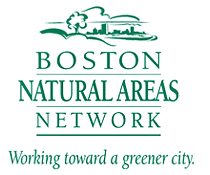 W
WThe Boston Natural Areas Network (BNAN), founded in 1977 is a non-profit organization based in Boston, in the U.S. state of Massachusetts, which works to identify and protect significant natural areas described as urban wilds and greenways in the metropolitan area.
 W
WBowling Alone: The Collapse and Revival of American Community is a 2000 nonfiction book by Robert D. Putnam. It was developed from his 1995 essay entitled "Bowling Alone: America's Declining Social Capital". Putnam surveys the decline of social capital in the United States since 1950. He has described the reduction in all the forms of in-person social intercourse upon which Americans used to found, educate, and enrich the fabric of their social lives. He argues that this undermines the active civil engagement which a strong democracy requires from its citizens.
 W
WBrotherhood and Unity was a popular slogan of the League of Communists of Yugoslavia that was coined during the Yugoslav People's Liberation War (1941–45), and which evolved into a guiding principle of Yugoslavia's post-war inter-ethnic policy. In Slovenia, the slogan "Brotherhood and Peace" was used in the beginning.
 W
WCelebrating The Third Place, subtitled: Inspiring Stories About The Great Good Places at the Heart of Our Communities, is a 2001 book by Ray Oldenburg. The book is a collage of 19 essays which tell stories of active third places in the heart of communities.
 W
WCommunity Change, formerly the Center for Community Change (CCC), is a progressive community organizing group active in the United States. It was founded in 1968 in response to civil rights concerns of the 1960s and to honor Robert F. Kennedy. The organization's stated mission is "to build the power and capacity of low-income people, especially low-income people of color, to change their communities and public policies for the better." Community Change has received funding from the Democracy Alliance and the Tides Advocacy Fund.
 W
WCivic engagement or civic participation is any individual or group activity addressing issues of public concern. Civic engagement includes communities working together or individuals working alone in both political and non-political actions to protect public values or make a change in a community. The goal of civic engagement is to address public concerns and promote the quality of the community.
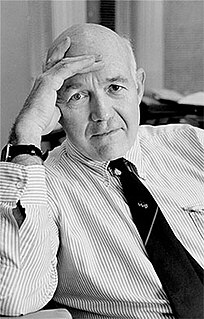 W
WJames Samuel Coleman was an American sociologist, theorist, and empirical researcher, based chiefly at the University of Chicago.
 W
WCollective action refers to action taken together by a group of people whose goal is to enhance their condition and achieve a common objective. Find Others is a platform designed to help people experiencing similar issues to find each other and take collective action, whether that be in the form of a campaign, petition or legal action. Collective action is a term that has formulations and theories in many areas of the social sciences including psychology, sociology, anthropology, political science and economics.
 W
WCommunitarianism is a philosophy that emphasizes the connection between the individual and the community. Its overriding philosophy is based upon the belief that a person's social identity and personality are largely molded by community relationships, with a smaller degree of development being placed on individualism. Although the community might be a family, communitarianism usually is understood, in the wider, philosophical sense, as a collection of interactions, among a community of people in a given place, or among a community who share an interest or who share a history. Communitarianism usually opposes extreme individualism and disagrees with extreme laissez-faire policies that neglect the stability of the overall community.
 W
WCommunity gardening in the United States functions as ecological green space, a gathering place for neighbors, a positive contribution to the reduction of food insecurity, promotes healthier eating through education programs, and provides access to gardening gardening to those who otherwise could not have a garden, such as the elderly, recent immigrants, urban dwellers, or the homeless. Some gardens are worked as community farms with no individual plots at all, similar to urban farms. Other gardens resemble European "allotment" gardens, with plots where individuals and families can grow vegetables and flowers; including a number which began as "victory gardens" during World War II.
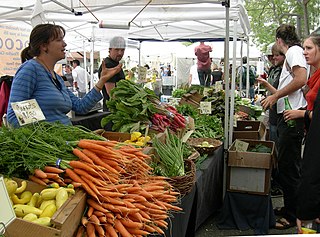 W
WCommunity-based economics or community economics is an economic system that encourages local substitution. It is most similar to the lifeways of those practicing voluntary simplicity, including traditional Mennonite, Amish, and modern eco-village communities. It is also a subject in urban economics, related to moral purchasing and local purchasing.
 W
WComposite nationalism is a concept that argues that the Indian nation is made of up people of diverse cultures, castes, communities, and faiths. The idea teaches that "nationalism cannot be defined by religion in India." While Indian citizens maintain their distinctive religious traditions, they are members of one united Indian nation. Composite nationalism teaches that prior to the arrival of the British in India, who introduced a divide and rule policy, there was no enmity between people of different religious faiths and so these introduced divisions can be overcome.
 W
WA credit union, a type of financial institution similar to a commercial bank, is a member-owned financial cooperative, controlled by its members and operated on a not-for-profit basis. Credit unions generally provide services to members similar to retail banks, including deposit accounts, provision of credit, and other financial services.
 W
WIn the field of sociology, cultural capital comprises the social assets of a person that promote social mobility in a stratified society. Cultural capital functions as a social relation within an economy of practices, and includes the accumulated cultural knowledge that confers social status and power. It comprises all of the material and symbolic goods, without distinction, that society considers rare and worth seeking.
 W
WThe Death and Life of Great American Cities is a 1961 book by writer and activist Jane Jacobs. The book is a critique of 1950s urban planning policy, which it holds responsible for the decline of many city neighborhoods in the United States. The book is Jacobs' best-known and most influential work.
 W
WDe La Démocratie en Amérique is a classic French text by Alexis de Tocqueville. Its title translates as On Democracy in America, but English translations are usually simply entitled Democracy in America. In the book, Tocqueville examines the democratic revolution that he believed had been occurring over the previous several hundred years.
 W
WEnterprise social networking focuses on the use of online social networks or social relations among people who share business interests and/or activities. Enterprise social networking is often a facility of enterprise social software, which is essentially social software used in "enterprise" (business/commercial) contexts. It encompasses modifications to corporate intranets and other classic software platforms used by large companies to organize their communication, collaboration and other aspects of their intranets. Enterprise social networking is also generally thought to include the use of a standard external social networking service to generate visibility for an enterprise.
 W
WThe Experiment in International Living, or The Experiment, is a worldwide program offering homestays, language, arts, community service, ecological adventure, culinary, and regional and cultural exploration programs of international cross-cultural education for high school students. It is administered by World Learning, a non-profit, international development and education organization based in Brattleboro, Vermont, in the United States.
 W
WThe Food Project is a non-profit organization that employs teenagers on farms in Lincoln, Roxbury and the North Shore of Massachusetts. It focuses on community improvement and outreach, and education about health, leadership, charity, and sustainable agriculture. The youth are recruited from urban areas of Boston, Lynn, and surrounding suburbs to plant and harvest crops for sale at Farmers' Markets and CSAs, and donation to local hunger-relief organizations and homeless shelters. The program emphasizes community building and fosters good work ethic, providing a good foundation for future employment.
 W
WFood swaps are events where members of a local community meet up to share homemade, homegrown, and foraged foods with each other. Apart from diversifying their larders and redistributing surpluses and gluts, they provide opportunities for building stronger communities, and picking up tips. No money changes hands. Attendees bring items that they wish to swap and then bid for each other's produce, either verbally or on cards in the form of a silent auction, until suitable swaps are negotiated. Often attendees bring extra items either as free samples or as contributions to a potluck lunch or tea, so that there is more time to get to know each other, exchange gossip and pass on tips.
 W
WA gathering place is any place where people are able to congregate. Gathering places may be public; for example, city streets, town squares, and parks; or private; for example, churches, coffee shops, stadiums, and theaters.
 W
WGavari, also spelt Gavri, is a 40-day long festival celebrated in July and September of each year in the Mewar region of Rajasthan, India.
 W
WGuerrilla gardening is the act of gardening on land that the gardeners do not have the legal rights to cultivate, such as abandoned sites, areas that are not being cared for, or private property. It encompasses a diverse range of people and motivations, ranging from gardeners who spill over their legal boundaries to gardeners with political influences who seek to provoke change by using guerrilla gardening as a form of protest or direct action. This practice has implications for land rights and land reform; aiming to promote re-consideration of land ownership in order to assign a new purpose or reclaim land that is perceived to be in neglect or misused.
 W
WHarambee is a Kenyan tradition of community self-help events, e.g. fundraising or development activities. The word means "all pull together" in Swahili, and is the official motto of Kenya, appearing on its coat of arms. The word was assimilated into the Swahili language from Hindi at the time of the building of the Uganda Railway from Mombasa to Kampala. Indian labourers used the phrase "har har Ambeh," or, "hail Ambeh"–an exhortation to Amba, the Hindu god of strength–when performing difficult tasks that often required more than one person to be involved, such as lifting heavy loads.
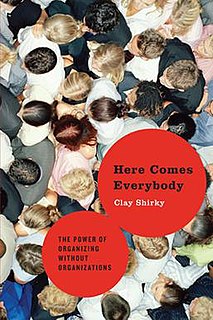 W
WHere Comes Everybody: The Power of Organizing Without Organizations is a book by Clay Shirky published by Penguin Press in 2008 on the effect of the Internet on modern group dynamics and organization. The author considers examples such as Wikipedia, MySpace, and other social media in his analysis. According to Shirky, the book is about "what happens when people are given the tools to do things together, without needing traditional organizational structures". The title of the work alludes to HCE, a recurring and central figure in James Joyce's Finnegans Wake and considers the impacts of self-organizing movements on culture, politics, and business.
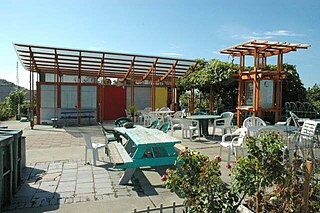 W
WInterbay P-Patch, "The Garden Between The Bays", is one of Seattle, Washington's largest and most involved community gardens, and is recognized as an example of resourcefulness and sustainability.
 W
WChristopher Kolade, CON, is a Nigerian diplomat and academic.
 W
WPeter Enrique Kollock was an American sociologist and an associate professor and vice chair in the department of sociology at the University of California, Los Angeles.
 W
WMaud Nathan was an American social worker, labor activist and suffragist for women's right to vote.
 W
WThe National Ex-Slave Mutual Relief, Bounty and Pension Association (MRB&PA) was an organization founded for the purpose of obtaining pensions for former slaves from the Federal government as compensation and reparations for their unpaid labor and suffering. Founded in 1896 and chartered in 1898 in Nashville, Tennessee, the organization was founded by former slaves Callie House and Isaiah H. Dickerson. According to historian Mary Frances Berry, the organization was "the first mass reparations movement led by African Americans."
 W
WNorth Star: Self Directed Learning for Teens is a self-directed learning center in Sunderland, Massachusetts, founded in 1996. North Star's mission is to help teenagers find ways to learn and excel outside of traditional middle school and high school. It offers a noncoercive learning environment without required classes, grades, or tests. Members range in age from 11 to 19 years old. Both previously-schooled teens and long-time homeschoolers attend the center. As of 2015, North Star has over 60 members and over 500 alumni from all over the Pioneer Valley and beyond.
 W
WCommunity organizing is a process where people who live in proximity to each other come together into an organization that acts in their shared self-interest.
 W
WIn economics, a public good is a good that is both non-excludable and non-rivalrous. For such utilities, users cannot be barred from accessing and/or using them for failing to pay for them. Also, use by one person neither prevents access of other people nor does it reduce availability to others. Therefore, the good can be used simultaneously by more than one person. This is in contrast to a common good such as wild fish stocks in the ocean, which is non-excludable but rivalrous to a certain degree. If too many fish were harvested, the stocks would deplete, limiting the access of fish for others. A public good must be valuable to more than one user, otherwise, the fact that it can be used simultaneously by more than one person would be economically irrelevant.
 W
WPublic sociology is a subfield of the wider sociological discipline that emphasizes expanding the disciplinary boundaries of sociology in order to engage with non-academic audiences. It is perhaps best understood as a style of sociology rather than a particular method, theory, or set of political values. Since the twenty-first century, the term has been widely associated with University of California, Berkeley sociologist Michael Burawoy, who delivered an impassioned call for a disciplinary embrace of public sociology in his 2004 American Sociological Association (ASA) presidential address. In his address, Burawoy contrasts public sociology with what he terms "professional sociology", a form of sociology that is concerned primarily with addressing other academic sociologists.
 W
WA public space is a place that is generally open and accessible to people. Roads, public squares, parks and beaches are typically considered public space. To a limited extent, government buildings which are open to the public, such as public libraries are public spaces, although they tend to have restricted areas and greater limits upon use. Although not considered public space, privately owned buildings or property visible from sidewalks and public thoroughfares may affect the public visual landscape, for example, by outdoor advertising. Recently, the concept of Shared space has been advanced to enhance the experience of pedestrians in public space jointly used by automobiles and other vehicles.
 W
WRobert David Putnam is an American political scientist. He is the Peter and Isabel Malkin Professor of Public Policy at the Harvard University John F. Kennedy School of Government. Putnam developed the influential two-level game theory that assumes international agreements will only be successfully brokered if they also result in domestic benefits. His most famous work, Bowling Alone, argues that the United States has undergone an unprecedented collapse in civic, social, associational, and political life since the 1960s, with serious negative consequences. In March 2015, he published a book called Our Kids: The American Dream in Crisis that looked at issues of inequality of opportunity in the United States. According to the Open Syllabus Project, Putnam is the third most frequently cited author on college syllabi for political science courses.
 W
WRegional Arts Commission of St. Louis or RAC is an organization located in St. Louis, Missouri, United States promoting arts and culture in the region.
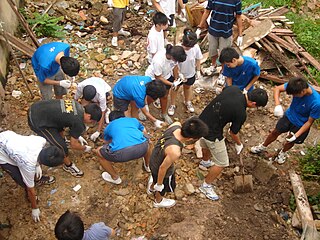 W
WService-learning is an educational approach that combines learning objectives with community service in order to provide a pragmatic, progressive learning experience while meeting societal needs.
 W
WThe small-world experiment comprised several experiments conducted by Stanley Milgram and other researchers examining the average path length for social networks of people in the United States. The research was groundbreaking in that it suggested that human society is a small-world-type network characterized by short path-lengths. The experiments are often associated with the phrase "six degrees of separation", although Milgram did not use this term himself.
 W
WSmart growth is an urban planning and transportation theory that concentrates growth in compact walkable urban centers to avoid sprawl. It also advocates compact, transit-oriented, walkable, bicycle-friendly land use, including neighborhood schools, complete streets, and mixed-use development with a range of housing choices. The term "smart growth" is particularly used in North America. In Europe and particularly the UK, the terms "compact city", "urban densification" or "urban intensification" have often been used to describe similar concepts, which have influenced government planning policies in the UK, the Netherlands and several other European countries.
 W
WA social network is a social structure made up of a set of social actors, sets of dyadic ties, and other social interactions between actors. The social network perspective provides a set of methods for analyzing the structure of whole social entities as well as a variety of theories explaining the patterns observed in these structures. The study of these structures uses social network analysis to identify local and global patterns, locate influential entities, and examine network dynamics.
 W
WSocial network analysis (SNA) is the process of investigating social structures through the use of networks and graph theory. It characterizes networked structures in terms of nodes and the ties, edges, or links that connect them. Examples of social structures commonly visualized through social network analysis include social media networks, memes spread, information circulation, friendship and acquaintance networks, business networks, knowledge networks, difficult working relationships, social networks, collaboration graphs, kinship, disease transmission, and sexual relationships. These networks are often visualized through sociograms in which nodes are represented as points and ties are represented as lines. These visualizations provide a means of qualitatively assessing networks by varying the visual representation of their nodes and edges to reflect attributes of interest.
 W
WSolidarity is an awareness of shared interests, objectives, standards, and sympathies creating a psychological sense of unity of groups or classes. It refers to the ties in a society that bind people together as one. The term is generally employed in sociology and the other social sciences as well as in philosophy and bioethics. It is also a significant concept in Catholic social teaching; therefore it is a core concept in Christian democratic political ideology.
 W
WThe Starfish and the Spider: The Unstoppable Power of Leaderless Organizations is a 2006 book by Ori Brafman and Rod Beckstrom. It is an exploration of the implications of the rise of decentralized organizations such as Grokster and YouTube. The book contrasts them to centralized organizations, such as Encyclopædia Britannica, using compendia of knowledge as examples. The spider and starfish analogy refers to the contrasting biological nature of the respective organisms, starfish having a decentralized neural structure permitting regeneration.
 W
WSwarāj can mean generally self-governance or "self-rule", and was used synonymously with "home-rule" by Maharishi Dayanand Saraswati and later on by Mohandas Gandhi, but the word usually refers to Gandhi's concept for Indian independence from foreign domination. Swaraj lays stress on governance, not by a hierarchical government, but by self governance through individuals and community building. The focus is on political decentralisation. Since this is against the political and social systems followed by Britain, Gandhi's concept of Swaraj advocated India's discarding British political, economic, bureaucratic, legal, military, and educational institutions. S. Satyamurti, Chittaranjan Das and Motilal Nehru were among a contrasting group of Swarajists who laid the foundation for parliamentary democracy in India.
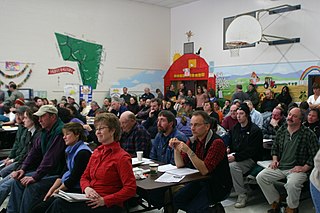 W
WA town meeting is a form of direct democracy in which most or all of the members of a community come together to legislate policy and budgets for local government. It is a town- or city-level meeting in which decisions are made, in contrast with town hall meetings held by state and national politicians to answer questions from their constituents, which have no decision-making power.
 W
WWall.fm is an online service for people to build and host social networking services, powered by Oxwall software. Wall.fm allows users over 18 years old to register a free account and create custom social networking websites. The site creation process does not involve any coding, and consists of only two steps. The distinctive Wall.fm features are user roles, customizable themes, activity newsfeed, website/profile/content privacy, monetization pack. One of its main competitive advantages is that the service is built on an open source platform, which means a certain degree of freedom for site owners. Wall.fm offers three plans: Starter, Pro and Ultimate. Plans offer different feature sets, disk space and bandwidth, individual support and vendor's branding removal. Every plan offers free trial.
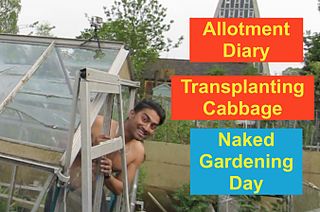 W
WWorld Naked Gardening Day (WNGD) is an annual international event generally celebrated on the first Saturday of May by gardeners and non-gardeners alike.
 W
WYouth voice refers to the distinct ideas, opinions, attitudes, knowledge, and actions of young people as a collective body. The term youth voice often groups together a diversity of perspectives and experiences, regardless of backgrounds, identities, and cultural differences. It is frequently associated with the successful application of a variety of youth development activities, including service learning, youth research, and leadership training. Additional research has shown that engaging youth voice is an essential element of effective organizational development among community and youth-serving organizations.